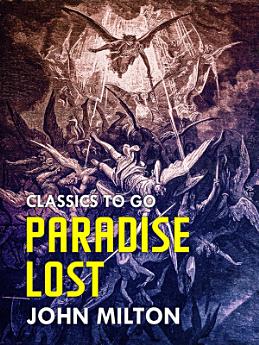Paradise Lost
Mar 2020 · Otbebookpublishing
Ebook
222
Pages
family_home
Eligible
info
reportRatings and reviews aren’t verified Learn More
About this ebook
Paradise Lost is an epic poem in blank verse by the 17th-century English poet John Milton (1608–1674). The first version, published in 1667, consisted of ten books with over ten thousand lines of verse. A second edition followed in 1674, arranged into twelve books (in the manner of Virgil's Aeneid) with minor revisions throughout and a note on the versification. It is considered by critics to be Milton's major work, and it helped solidify his reputation as one of the greatest English poets of his time. (Wikipedia)
About the author
John Milton (1608-1674) was a towering figure in English literature and a passionate advocate for civil liberties and freedom of expression. Born in London to a prosperous scrivener, Milton received an extensive education, mastering Latin, Greek, and Hebrew, which profoundly influenced his literary style. His early works, including "Lycidas" and "Comus," showcased his lyrical prowess and deep engagement with classical themes.Milton's life was marked by his fervent involvement in the political and religious upheavals of 17th-century England. A staunch Puritan, he supported the Parliamentary cause during the English Civil War and served as a civil servant under Oliver Cromwell's Commonwealth. His pamphlets, such as "Areopagitica," a vehement defense of free speech and against censorship, remain influential and resonate with contemporary debates on freedom of the press.Milton's personal life was equally dramatic. He experienced profound loss, including the deaths of two wives and several children, and faced the challenge of complete blindness by his mid-forties. Despite these hardships, he continued to produce profound and innovative works, dictating his writings to aides.Controversially, Milton's political writings justified regicide, arguing that the people had the right to depose and execute a tyrannical monarch, a radical stance that shocked many contemporaries. His ideas on individual liberty and governance influenced later revolutionary thinkers and writers, including those of the American and French Revolutions.Milton's legacy endures not only through his poetic and prose works but also through his unwavering commitment to the principles of liberty, justice, and intellectual freedom, making him a timeless figure of enduring relevance.
Rate this ebook
Tell us what you think.
Reading information
Smartphones and tablets
Install the Google Play Books app for Android and iPad/iPhone. It syncs automatically with your account and allows you to read online or offline wherever you are.
Laptops and computers
You can listen to audiobooks purchased on Google Play using your computer's web browser.
eReaders and other devices
To read on e-ink devices like Kobo eReaders, you'll need to download a file and transfer it to your device. Follow the detailed Help Center instructions to transfer the files to supported eReaders.







